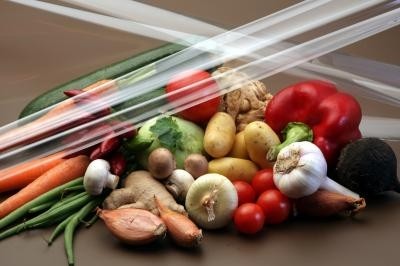Plastic could be ‘whey’ more recyclable
Protection against oxygen is a vital requirement of food packaging, and according to German research group ttz Bremerhaven (TTZ), a partner in WHEYLAYER, the project is informed by the fact that whey acts as a good moisture-barrier film.
Whey is a by-product of cheese production, with TTZ claiming that 50 million tonnes of it are yearly accumulated in the EU.
The dairy sector and beyond are increasingly looking at ways to develop new applications for the product, particularly in the light of high milk costs.
Environmental factors
Dr Hauke Hilz, team manager with TTZ’s Department of Bio Processing Engineering Food Technology explained that although polyolefin films such as polyethylene (PE) and polypropylene (PP) are excellent moisture barriers, they must be laminated with synthetic polymers like ethylene vinyl alcohol (EVOH) and polyvinylidene chloride (PVDC) copolymers to provide an oxygen barrier.
“The resulting polymeric structures, while effective in minimising the permeation of oxygen, water vapour, and odour, are characterised by their poor reuse due to difficulties in separating each layer for its individual recycling,” said Hilz.
He said that whey coating on plastic films has advantages over the synthetic polymers in that it can be easily removed, chemically or enzymatically, for recycling of the plastic.
“This project will build on past research in order to arrive at a commercially feasible technique for developing whey coated plastic films, without compromising the oxygen or moisture barrier performance of conventional plastic films, while also increasing their recyclability,” added Hilz.
Partnership
The WHEYLAYER consortium includes packaging and whey protein experts, representatives of the plastics recycling and equipment manufacturing sectors as well as several small and medium sized dairy companies.
Hilz said the partners will be involved in the development, testing and validation of a whey protein coated film prototype and will also assist with its eventual production and release onto the market.
Low cost
He claims that the use of this cheese production by-product as a coating for plastic films will provide significant added value to the dairy and food packaging sectors.
‘We aim to ensure WHEYLAYER materials are sufficiently low cost so that they can be fully exploited by small and medium sized enterprises (SMEs),” said Hilz.
The duration of the WHEYLAYER project is three years and it is supported by the 7th Framework Research Programme of the European Union; it was initiated by innovation centre, Innovació i Recerca Industrial i Sostenible (IRIS) and is coordinated by Petita i Mijana Empresa de Catalunya (PIMEC).
This article was amended from the original on 15 Jan 2009 which indicated that tttz Bremerhaven was the coordinator of the WHEYLAYER project. Petita i Mijana Empresa de Catalunya (PIMEC) is, in fact, the coordinator and not ttz Bremerhaven, as originally stated. FoodProductionDaily.com apologizes for any misunderstanding arising from the original article.





